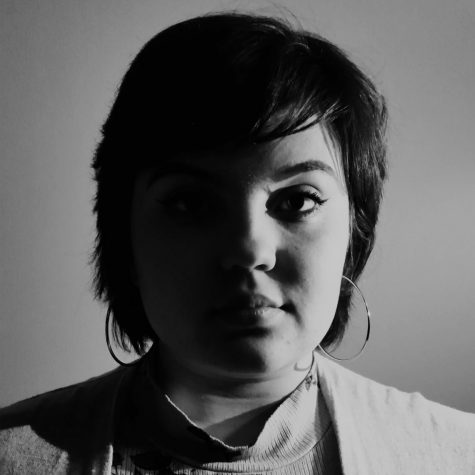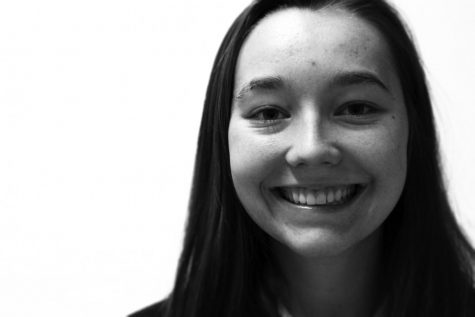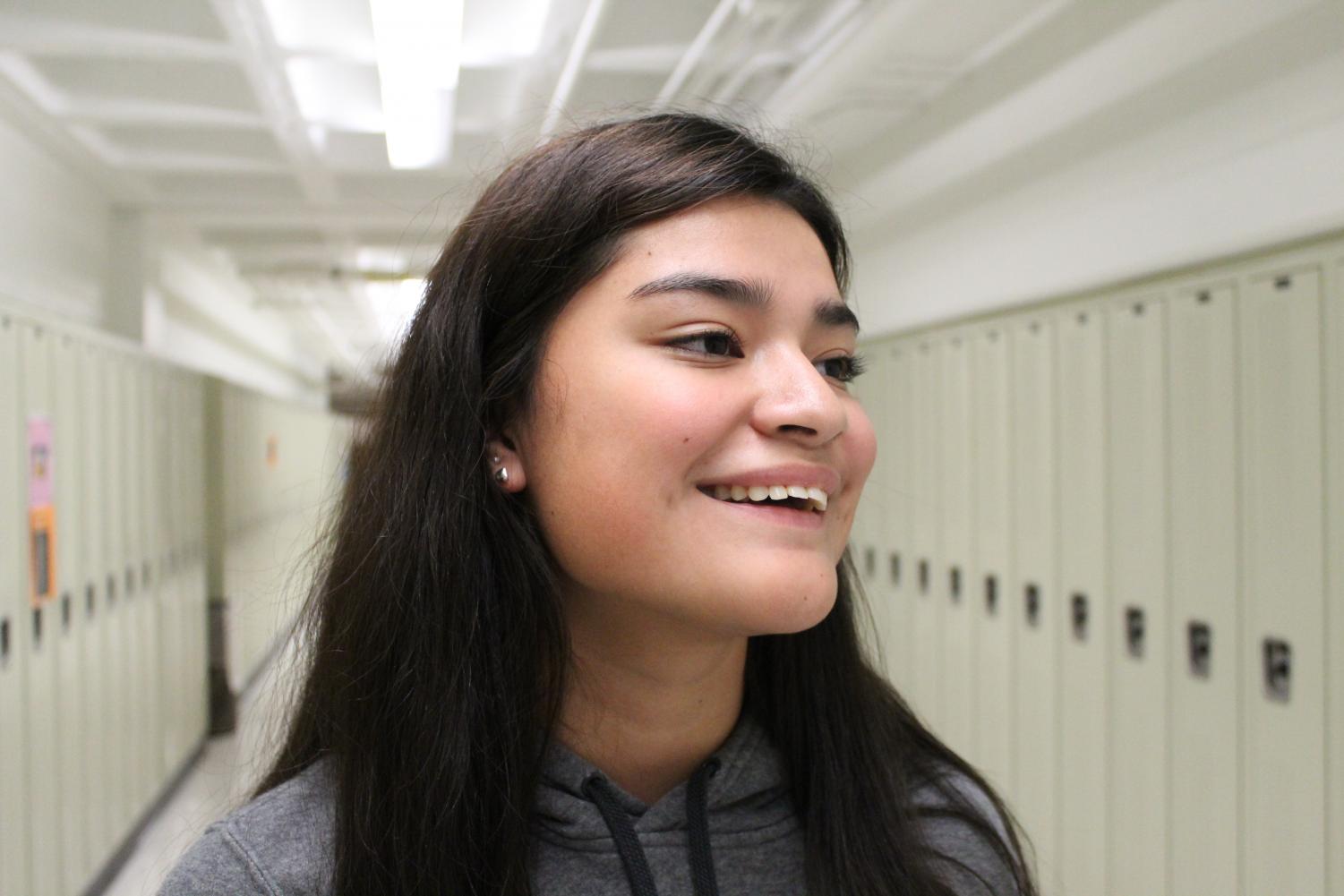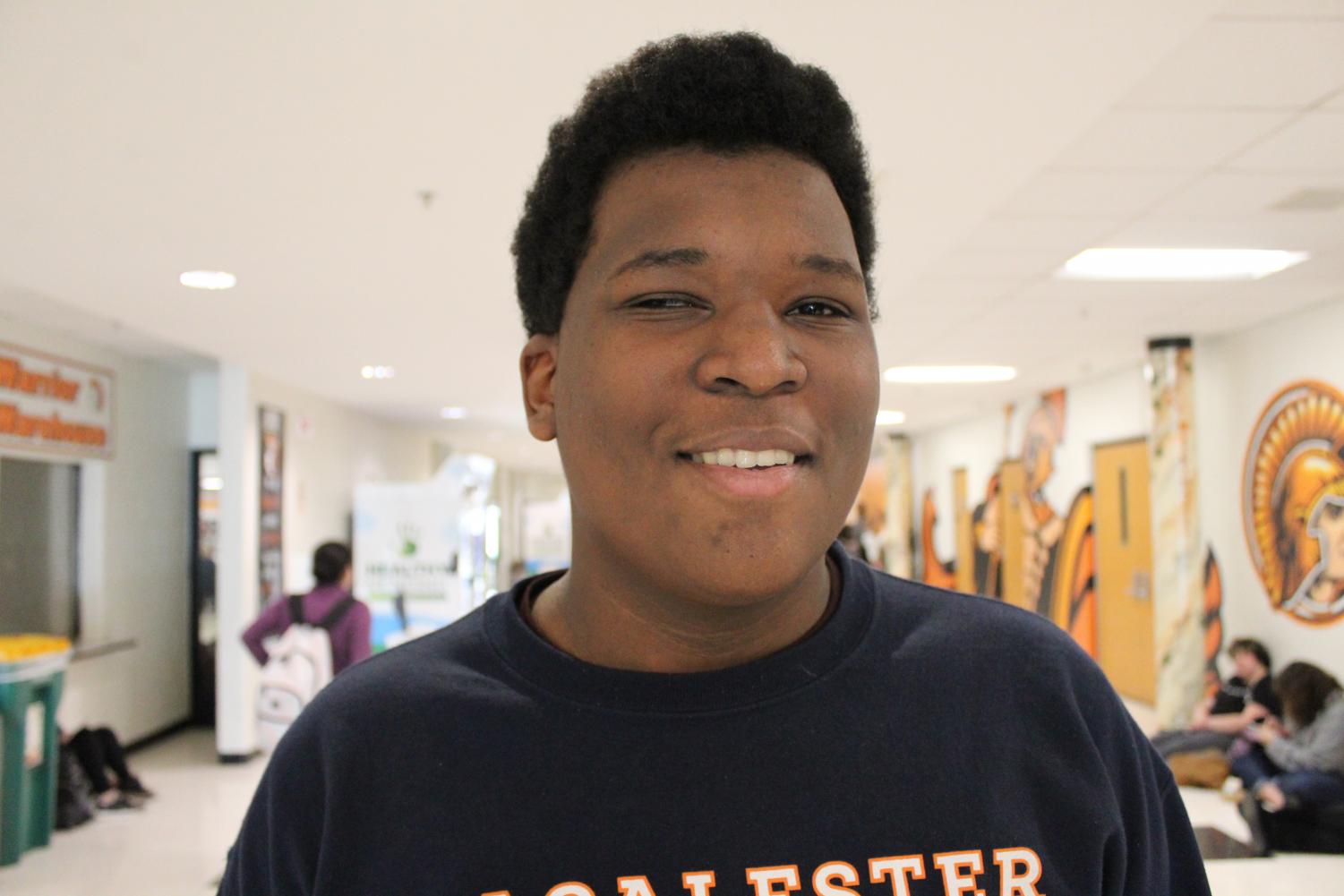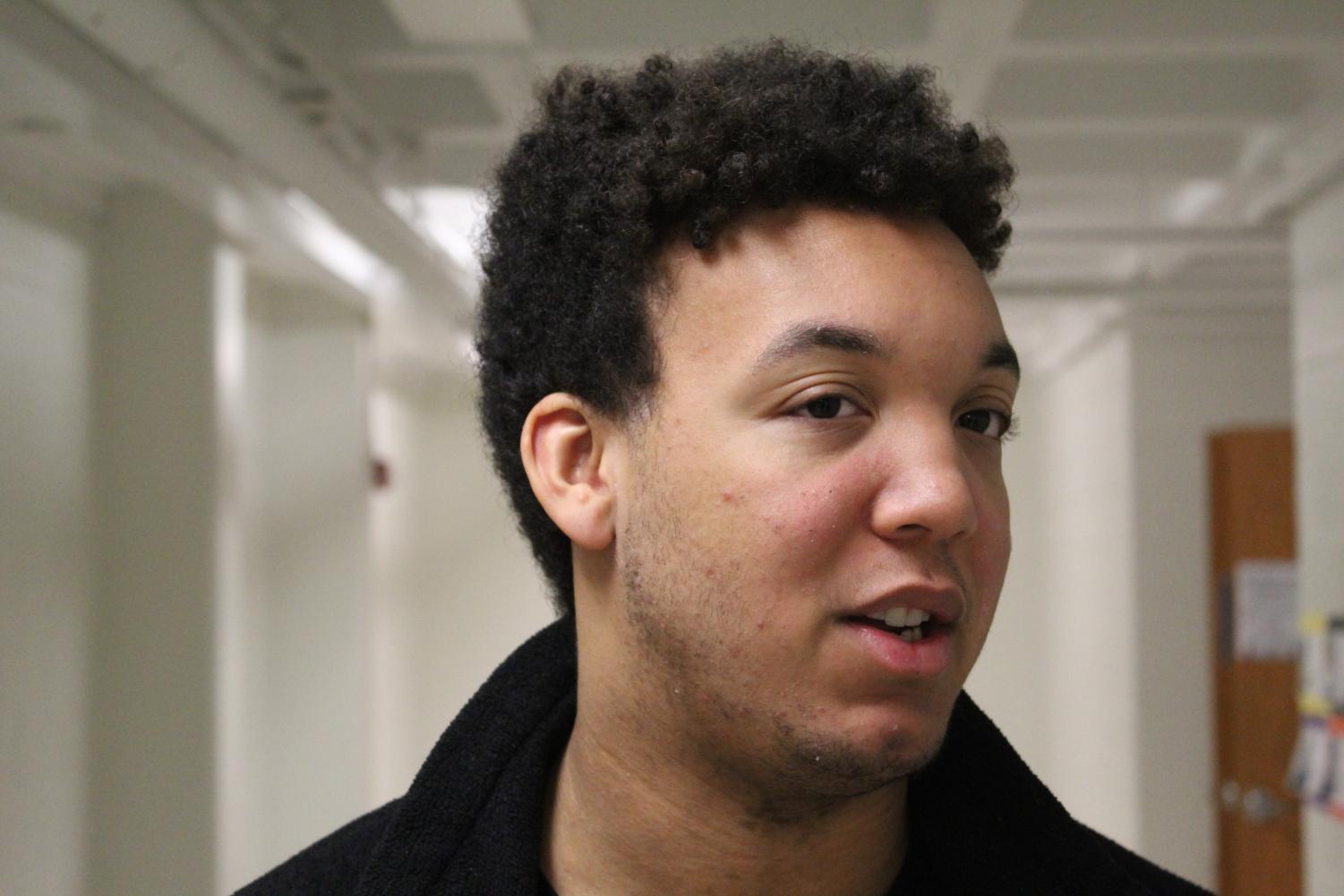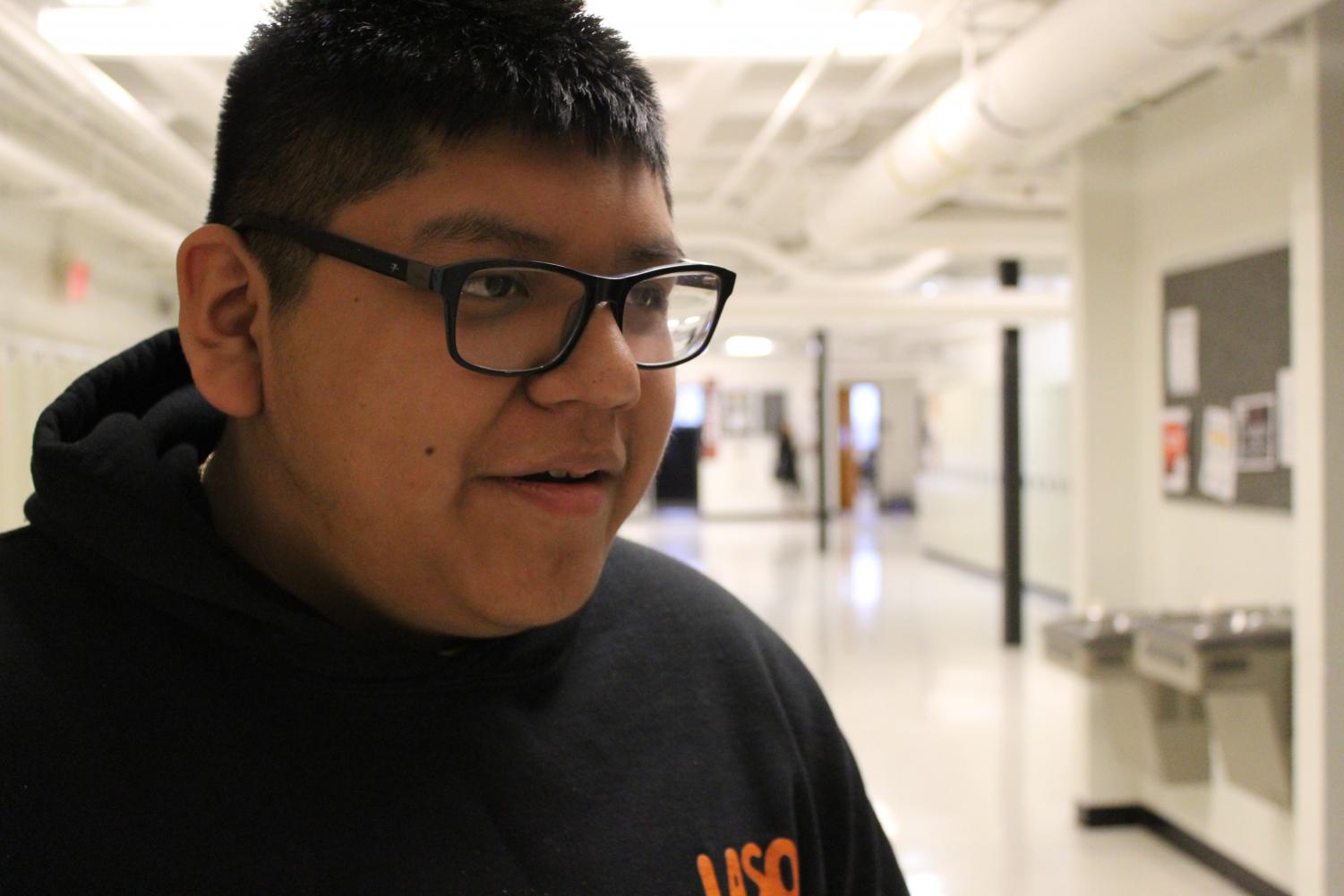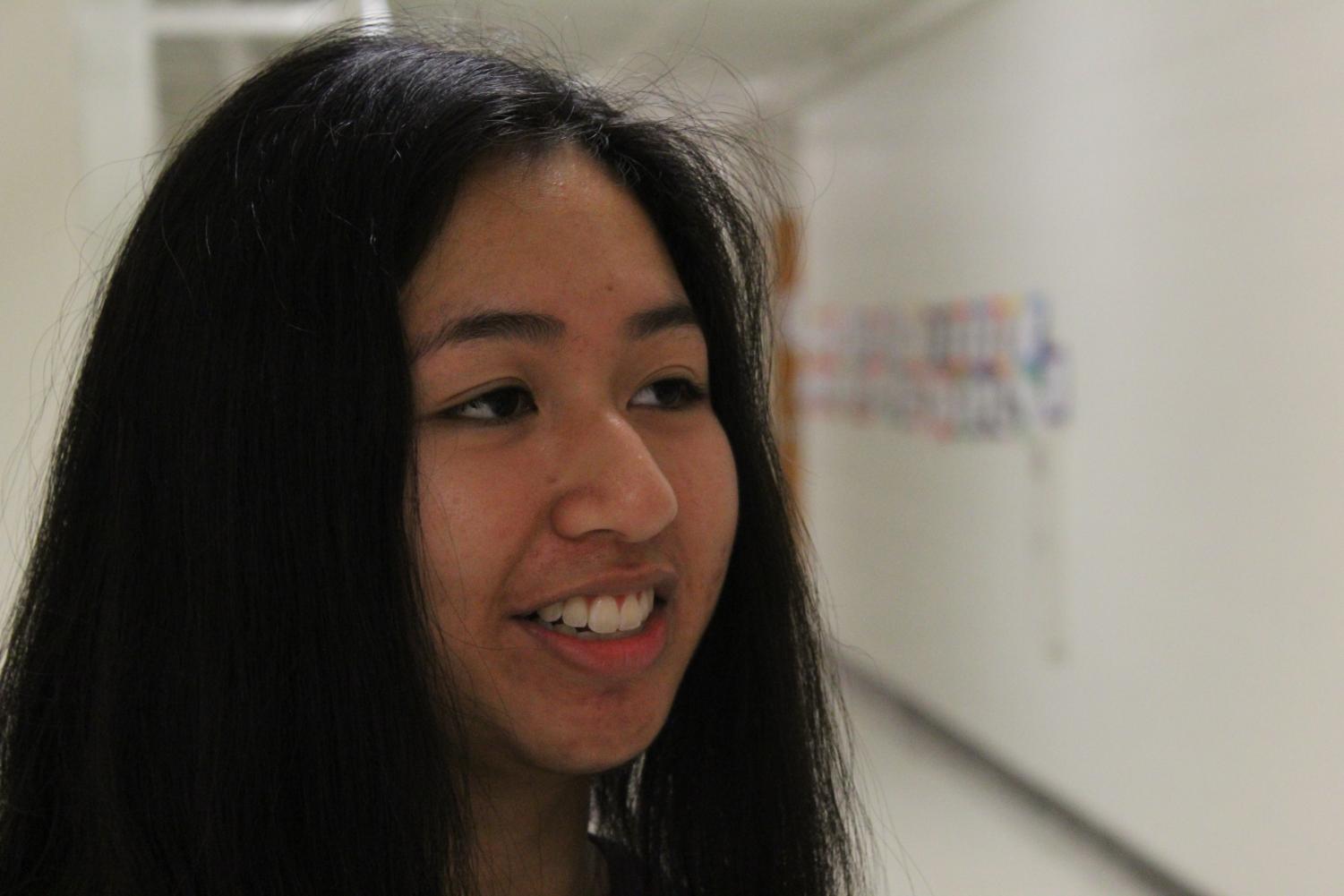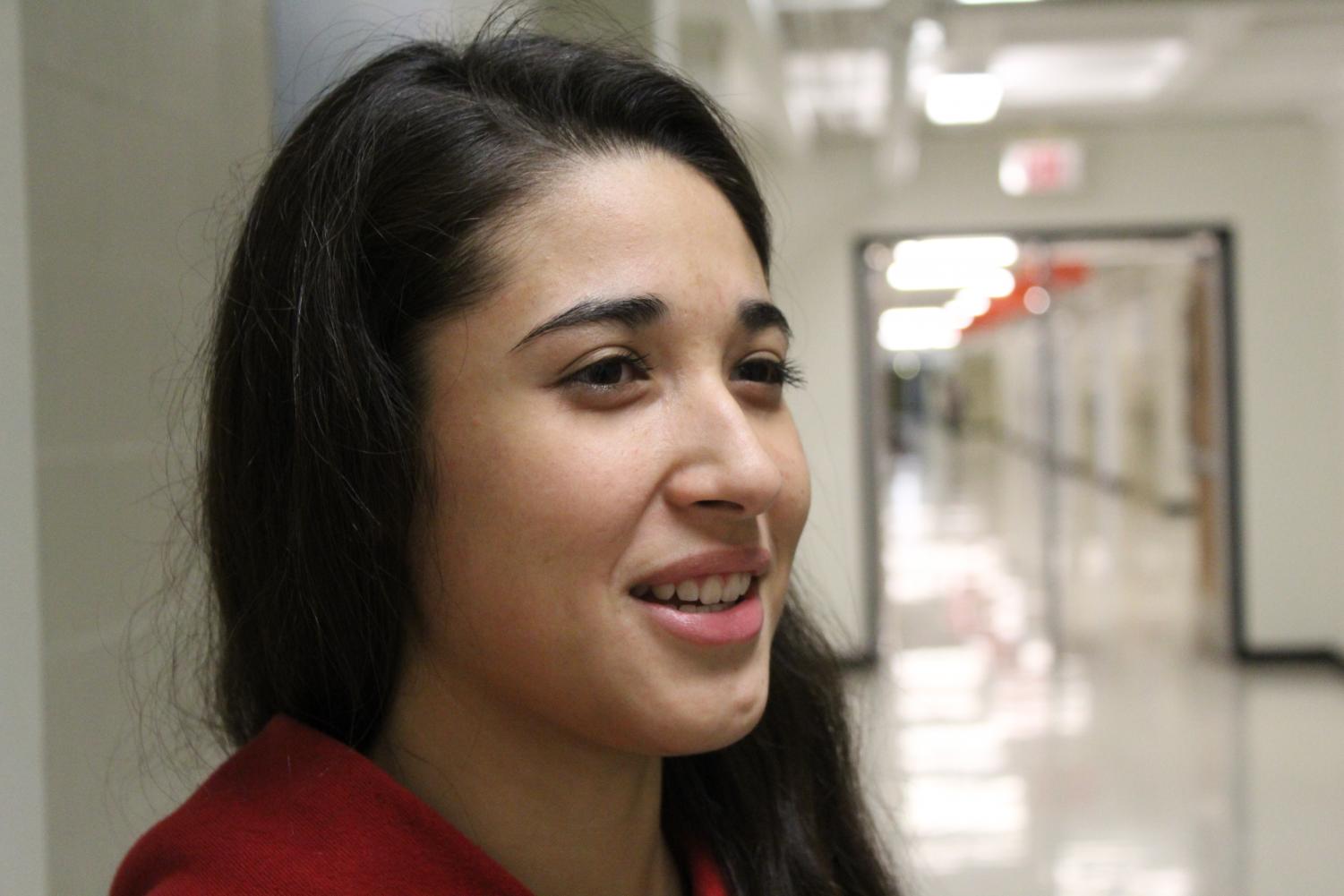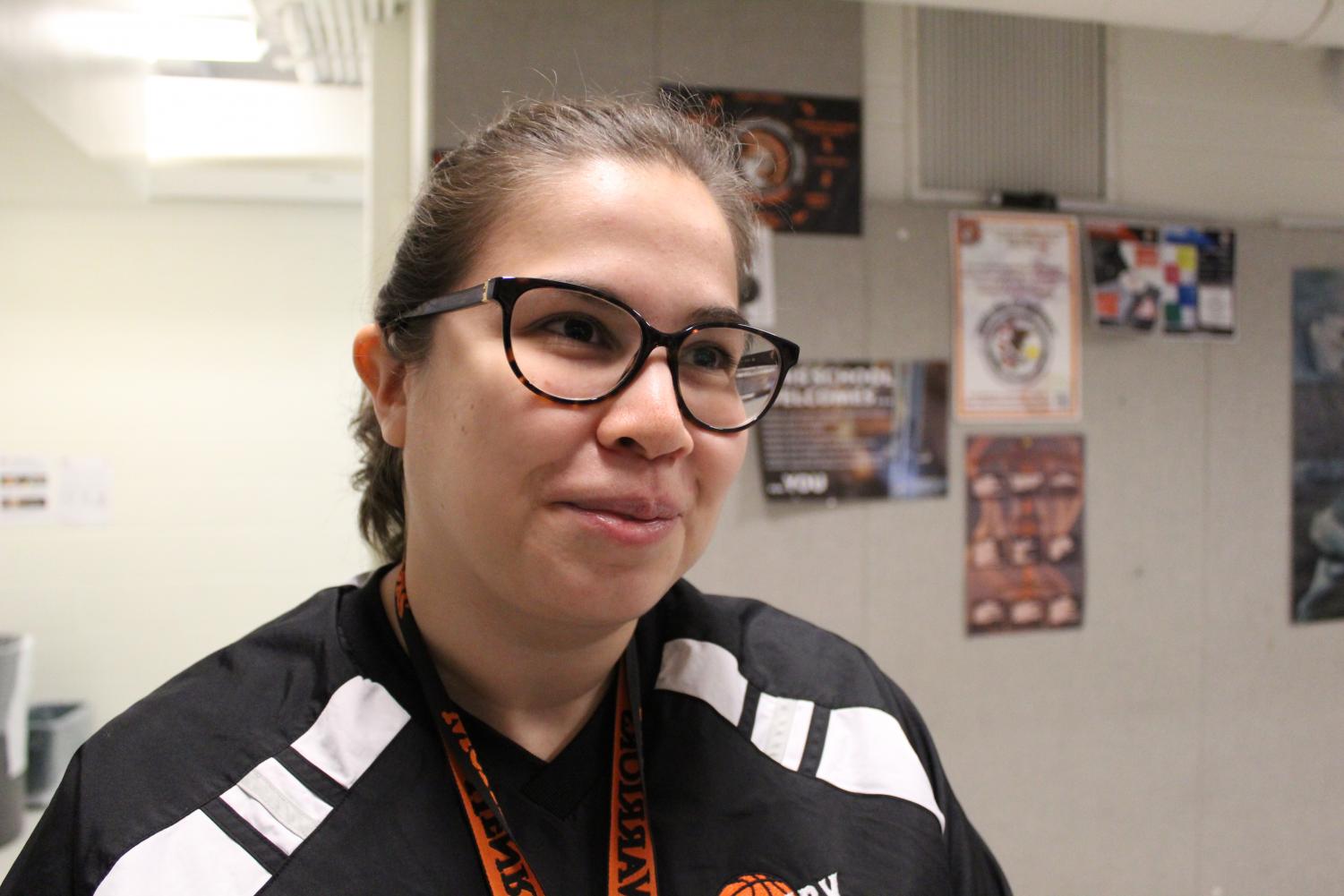East junior Gisselle Sandoval is bubbly, funny and loves to play racquet-sports. Born from immigrant parents, Sandoval discussed what being a Mexican-American means to her, and the importance of empathy.
“There’s different races here, obviously,” she says. “But you turn a corner and there’s American people. White people. Because of that, I feel like I don’t have much of my culture because, let’s say, I can’t speak Spanish to one of my white friends. So, it’s like I can’t express myself like I could with someone who speaks Spanish. In a weird way, I feel like I’m not as Mexican as I could be.”
Tying into that internal struggle, Sandoval feels as though her race invalidates her opinion.
“I feel like my opinion on some things isn’t as important,” Sandoval says. “It’s as if I, a Mexican, have this opinion, I’m going to be overruled because there’s so many more Americans who might think the complete opposite of me. I feel like we have no say in a lot of stuff. Because if there’s a vote [for example], there’s so many more of them they’re obviously going to win. I feel like my opinion is seen as lesser than.”
Considering the fact that this is the reason why diversity is so valuable in things like jury panels, and minority student-unions exist, it makes sense why a student going to a school with few of these kinds of resources could feel silenced. Additionally, experiences of blatant racism has led Sandoval to feel as though she is alienated in her environment.
“During the time of the Boston marathon bombing, which I can’t believe kids were thinking like this in fourth or fifth grade, but everyone would say ‘What if it’s Gisselle because she’s Mexican?’. I sat there like ‘And you’re white. I’m Mexican. It could’ve been anyone.’ That was the first time as a kid that I was hit with [racism]. Since elementary [school], I did bilingual classes, so I was always with Mexicans. Which, by the way, is awful. I hate that. They separated us from white kids. They never made us bond. I never talked to an American kid because they excluded us. We couldn’t quote-on-quote “communicate” with them. But I was there, learning, I could communicate.”
Although Spanish is her first language, and the one predominantly spoken in her home-life, Sandoval learned English through the television in her household. It would make sense to want to share her language and culture with others. But, even through everything, Sandoval is still grateful to have her culture by her side.
“I like the idea that I have so much more culture behind me.”
Because she has a culture that other groups do not, Sandoval emphasized that she wants people to try to understand, instead of hate, what is unknown to them.
“Be open-minded to anything,” Sandoval says. “Once you go off, you’re not going to be surrounded by white people. You’re not going to be secured in this white bubble. You’re going to go out there and you’re going to meet different people of different ethnicities and everything and you have to be open-minded to all kinds of people.”
Continuing on this idea, Sandoval made it clear that she wanted other minority students to accept themselves.
“If anyone were to say something rude or racist or something, don’t let it hit you,” Sandoval says. “At the end of the day, you have more culture, you probably know another language, and I’m being 100% biased right now, but just by you being you, you’re superior. You have so much. So much culture, so much everything that these white people don’t have. At the end of the day, you know more, you do more, so just keep going.”
As harsh as it may sound, Sandoval spoke frequently of how she had always been surrounded by white people and friends.
“Basically, a lot of white people are like, ‘If you don’t like it, leave.’ Let me explain that. As someone who is a first-generation American, I could say my grandma is from Veracruz, in Mexico, [where] you can’t even walk in the streets past 7:00 or you will be killed, and your kidneys will be found on the black market. So yeah, I could go back, but I’m definitely going to die.”
Finally, Sandoval felt necessary to share her feelings on the controversy that has been surrounding our president.
“Just because Trump may be reelected doesn’t mean you need to be rude about it,” Sandoval says. “Ever since Trump came in office, that’s when the racism really hit. Don’t be close-minded, please. One day Mr. Trump will be out, and you won’t be able to hide.”
